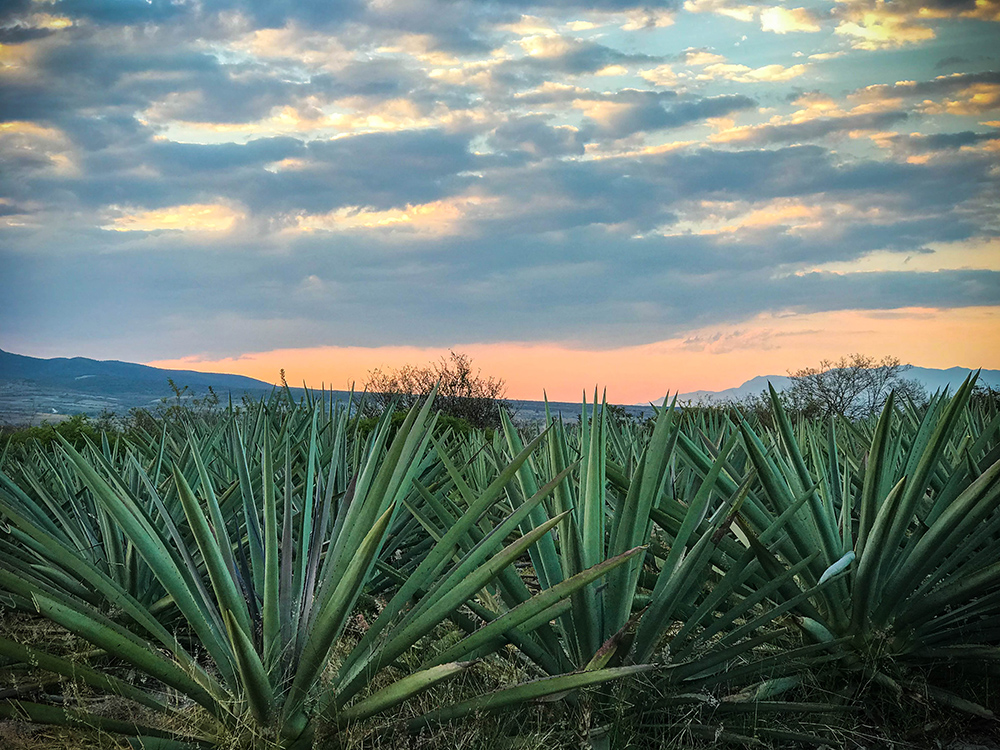With big distilling companies come big responsibilities and, well, big budgets. Conversely, small operations don’t have as much financial wiggle room, largely because of the up-front costs associated with overhauling an existing system. Though this makes it more difficult for them to achieve sustainability, that doesn’t mean it’s impossible. In fact, a number of tiny, low-budget distilleries have proven you can be kinder to the earth without oodles of cash. We spoke to several with notable, eco-forward initiatives to see what changes they’ve made in the name of a greener, happier planet.
Source Locally as Much As Possible
“Our recipes feature as many great ingredients we can source from our local area as possible,” says Paul Twyford, a co-founder of Winter Park Distilling Company. “We’re fortunate in Florida to have such fantastic agriculture, and it makes a big difference to transport grain 30 miles versus 300 miles. It has a positive ripple effect, from reducing our carbon footprint to supporting neighbors that farm these amazing ingredients.”
For companies that have limited access to rich agricultural resources, it’s possible to make an effort to source other necessary products from as close-to-home as possible.
Use Green Energy
“The single biggest step we’ve taken is choosing to use a 100% green energy supplier,” says Abbie Neilson, the director of Yorkshire, England-based Cooper King. Though not yet open (their first launch is forecasted for 2023), they’ve received international attention for their decision to use 100% pure energy in the production of their spirits. “By powering the distillery with green energy, we reduce the environmental impact of our operations, while supporting Britain’s energy independence and reducing the country’s reliance on fossil fuels.”
Neilson says the slightly higher energy cost means their product will inevitably cost more, but they believe it’s a step in the right direction toward global sustainability and promoting green energy projects and wind farms.
The solar energy used at the Sombra Mezcal distillery is another example of relying on green energy. Traditionally, roasted agaves are crushed with a stone wheel called a tahona mill that’s drawn by horse or donkey.
“At Sombra Mezcal, the animals have been freed from drudgery by a solar-powered tahona,” says Richard Betts, founder and master sommelier. “Oaxaca enjoys 300 days a year of sunshine and, with the addition of more solar panels, the sun’s power will soon provide for 100% of the palenque’s – spanish for distillery – electricity needs.”
Re-Use Yeast
Naturally, Twyford works with a lot of grains and yeast at Winter Park Distilling Company.
“Yeast is also a critical component of our distilling process, and making an extra effort to sustain our yeast is another way we commit to sustainability,” he says. “The choice is pretty simple: you can either buy more yeast whenever you run out, or you can re-use yeast from your previous batch.”
While it does take more work to keep your yeast strain alive, it also has a really positive impact on the environment and on the product, as well. You’ll see more consistency by re-using yeast, notes Twyford.
Re-Channel Waste Streams
Waste is perhaps one of the biggest issues any distilling company or winery faces, but it’s also one of the easiest ways to make sustainable moves. “In an effort to confirm our commitment to sustainability, we have established a joint venture called Timberfish, which uses the byproduct from brewing and distilling to farm-raised fish on site at Five & 20 Spirits and Brewing, says Mario Mazza, general manager and co-founder to the distillery/brewery. “The on-site fish farm is a great sustainable effort to create a value-added product out of something that would typically incur a cost to dispose.”
Betts adds, “The noxious byproducts of mezcal production — liquid residue and spent fibers —are traditionally dumped into rivers. These wastes deplete oxygen that aquatic life depends upon and can make the water undrinkable for villagers.” At Sombra Mezcal, this waste is transformed daily into beneficial compost and upcycled into adobe bricks that are then donated for public works. They’re also investigating repurposing the waste as potential biofuel for the stills.
Monitor Consumption
Simply being aware of how much energy is consumed allows for making more sustainable adjustments. “Production-wise, aside from using green energy, we recycle distillation cooling water and have installed water meters to enable us to monitor and reduce consumption further,” says Neilson. “One of our long-term goals is to become energy-independent and move to solar power. Although too costly to implement at present, the system has already been designed and is factored into the distillery expansion plan.”
Reduce Water Waste
On that note, reducing water waste is key in achieving sustainability at any distillery “A sustainable addition to our brand that we are very proud of is our cooling water recycling system, says Twyford. “Distilleries use a tremendous amount of water. It was unbelievable to us how much water could be wasted in the cooling process — in our case, more than 750 gallons with each batch.”
He says they couldn’t find an off-the-shelf solution, so instead put their heads together, rolled up their sleeves, and built their own.“It’s definitely not the most beautiful sight, but our repurposed pool pump, pipes and valves now save us an average of 15,000 gallons per month,” Twyford says. “When we host tours of the distillery, it’s one of my favorite things to talk about because you can really see where making a commitment like this to keep your community sustainable really resonates with those who enjoy our products.”
Use Eco-Conscious Packaging
A heavy glass bottle can evoke a sense of luxury for the consumer, but it may not necessarily be the best option for the environment.
“We’re bucking the trend for packaging spirits in heavy glass bottles for that premium ‘feel’ by sourcing light-weight bottles, thus reducing raw material consumption,” says Neilson. “Using biodegradable packaging to send our products to consumers reduces the amount of plastic entering homes, and potentially landfill.”
At Sombra Mezcal bottles are made from locally recycled glass, which avoids the need for more natural resources and uses less energy.
Bottom Line
Despite budget and locale, the above have demonstrated that even small operations have the ability to greatly reduce their environmental impact. From sourcing ingredients locally to re-thinking packaging to figuring out a smarter way to handle byproduct, it ultimately boils down to a company’s willingness to devote time and energy toward greener production.





